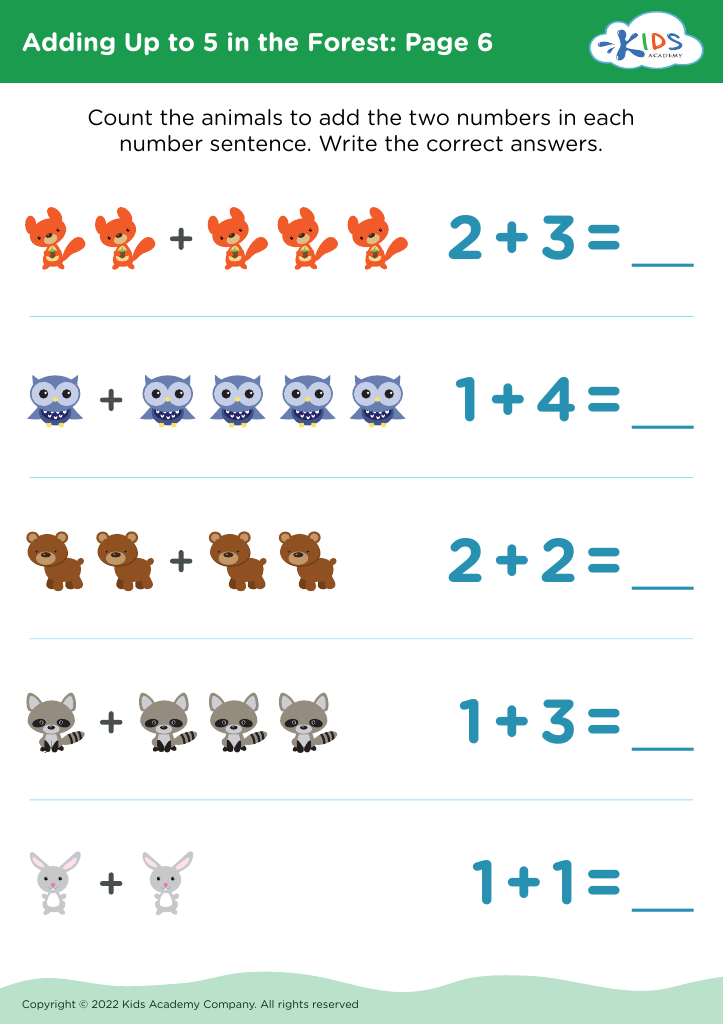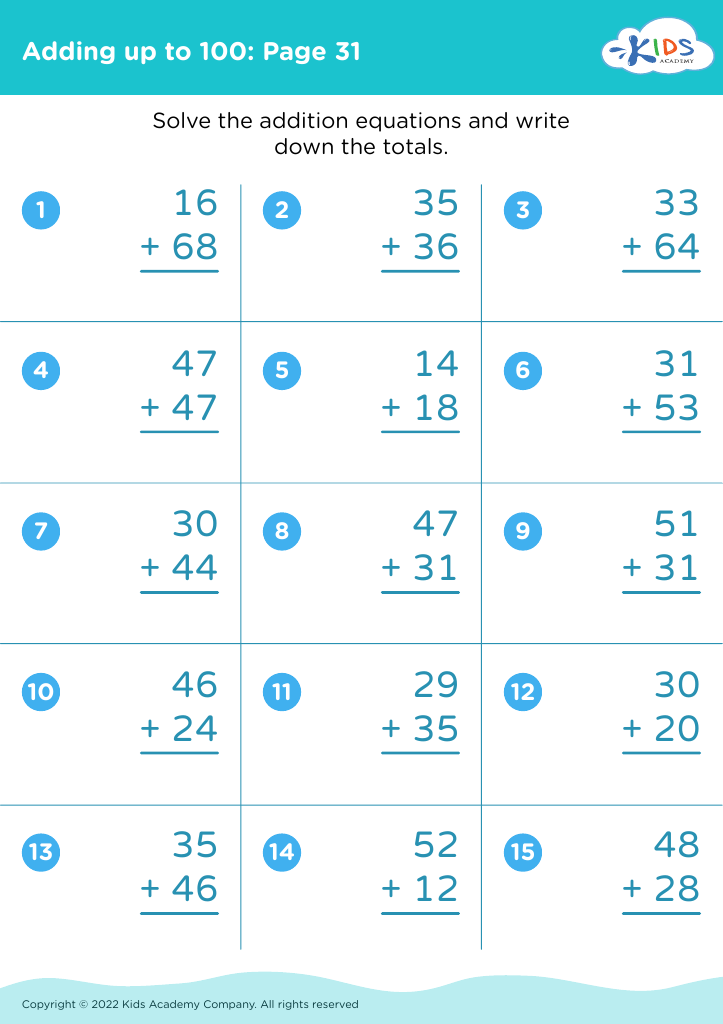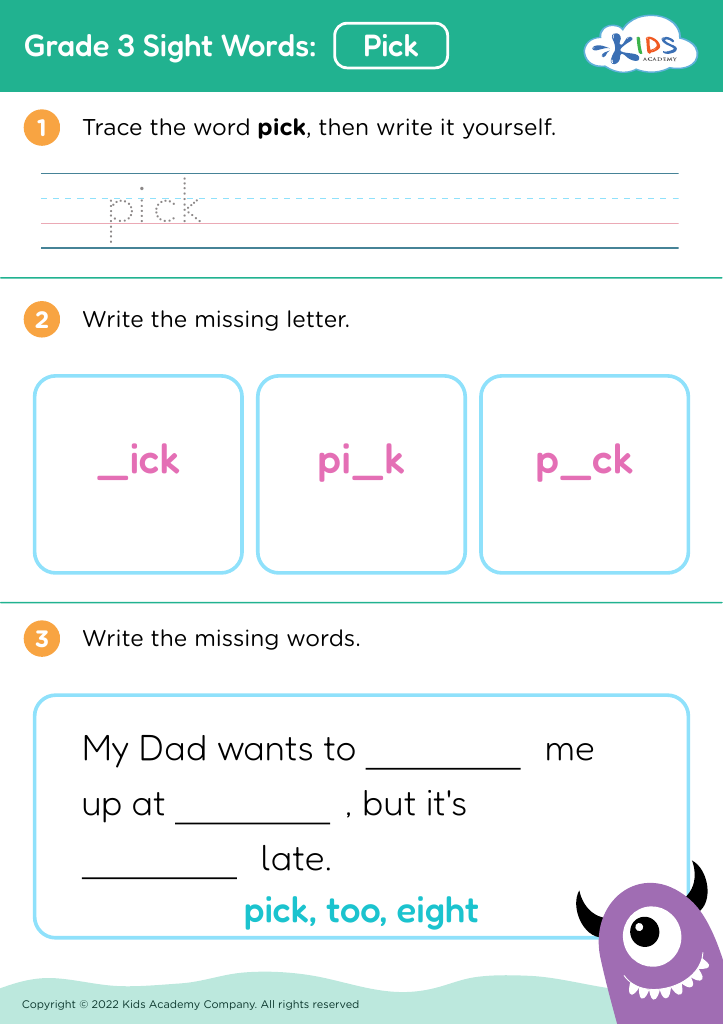Improve fine motor skills Worksheets for Ages 4-9
4 filtered results
-
From - To
Discover our engaging "Improve Fine Motor Skills Worksheets" specifically designed for children ages 4-9! These interactive worksheets provide fun and creative activities that help young learners refine their hand-eye coordination and dexterity. From tracing letters and shapes to cutting and pasting, each worksheet is crafted to enhance motor skills essential for writing, drawing, and crafting. Ideal for parents and educators, our materials foster an enjoyable learning experience while supporting children's developmental milestones. Download these worksheets today and empower your child with the fine motor skills they need for success in school and everyday activities! Perfect for home or classroom use!
Improving fine motor skills in children aged 4 to 9 is vital for their overall development and learning success. These skills, which include the ability to use small muscles for tasks like writing, buttoning shirts, or drawing, are foundational for many daily activities. When children develop strong fine motor skills, they can better engage with academic tasks, as writing, cutting, and manipulating objects are integral to their learning experiences.
Parents and teachers play a crucial role in fostering these skills through targeted activities and play. Fine motor development enhances hand-eye coordination, dexterity, and concentration—qualities that are essential not only in the classroom but also in life. Furthermore, mastering these skills boosts children's confidence and independence, enabling them to perform tasks without frustration.
Beyond the practical applications, fine motor development is also linked to cognitive growth. Research shows that engaging in activities that promote fine motor skills can stimulate brain development and improve academic performance. By prioritizing fine motor skill improvement, parents and teachers can set children on a path to lifelong learning and self-sufficiency, ensuring they are prepared for the increasing challenges of their educational journey. Thus, investing time in fine motor skill activities is a strategic step toward nurturing well-rounded, capable individuals.



















